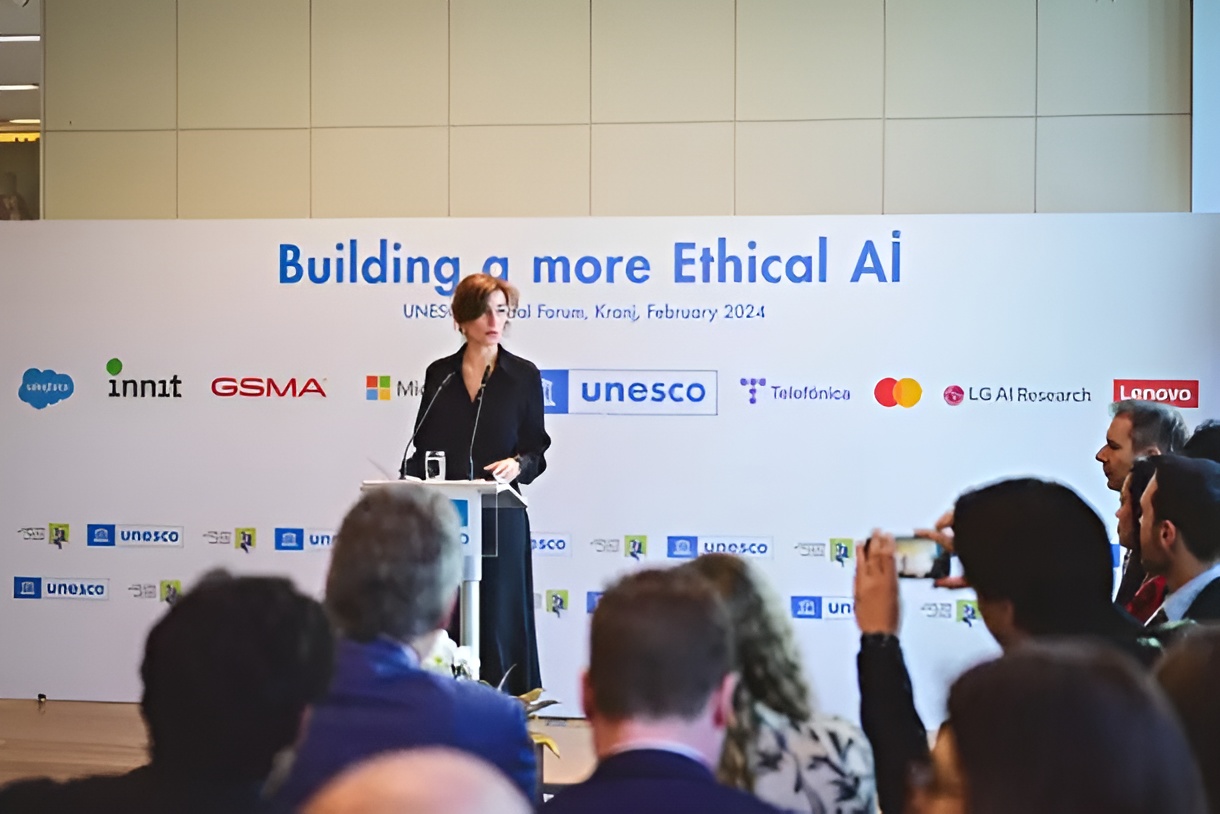8 AI firms sign agreement with UNESCO on ethical AI
Eight major firms involved in development and deployment of Artificial Intelligence around the world have signed an agreement with the United Nations Educational, Scientific and Cultural Organisation (UNESCO), providing a major boost to the initiative of the UN organisation to promote ethical use of AI.
In a press statement UNESCO says that the firms, GSMA, INNIT, Lenovo Group, LG AI Research, Mastercard, Microsoft, Salesforce and Telefonica, signed the ground-breaking agreement to build more ethical AI. The companies will integrate the values and principles of UNESCO’s recommendation on the ethics of AI when designing and deploying AI systems, adds UNESCO.

Audrey Azoulay
‘‘In November 2021, UNESCO forged a consensus between all its Member States to adopt the first global ethical framework for the use of artificial intelligence. Today, we are taking another major step by obtaining the same concrete commitment from global tech companies. I call on all tech stakeholders to follow the example of these first eight companies. This alliance of the public and private sectors is critical to building AI for the common good,” says UNESCO’s Director-General, Audrey Azoulay.
The statement adds that the agreement was signed in Kranj, Slovenia at the 2nd UNESCO Global Forum on AI. It compels the companies to fully play their role in guaranteeing human rights in the design, development, purchase, sale, and use of AI. This is the first time that companies have engaged with the United Nations in this area, says UNESCO.
The agreement states that due diligence, must be carried out in order to meet safety standards, to identify the adverse effects of AI, and timely measures taken to prevent, mitigate, or remedy them, in line with domestic legislation. The agreement also notes that ex-ante testing, or testing before a new AI system is released onto the market, is essential. But given the fast evolution of AI systems already on the market, it also calls for the development of ex-post or post-deployment risk assessments and mitigation practices.
The statement adds that UNESCO’s Recommendation on the Ethics of Artificial Intelligence was the world’s first, and remains its only normative framework on AI. UNESCO says that in the past two years, demonstrable progress has been made towards implementing this framework. Today, more than 50 countries are now actively engaged in its implementation and multilateral cooperation has increased considerably.
UNESCO adds that since the adoption of the Recommendation, it has also been advancing collaboration with the private sector, leading to the establishment of a Business Council for Ethics of AI, co-Chaired by Microsoft and Telefonica. The Business Council is committed to strengthening technical capacities in ethics and AI, designing and implementing the Ethical Impact Assessment tool mandated by the Recommendation on the Ethics of AI, and contributing to the development of intelligent regional regulations.










